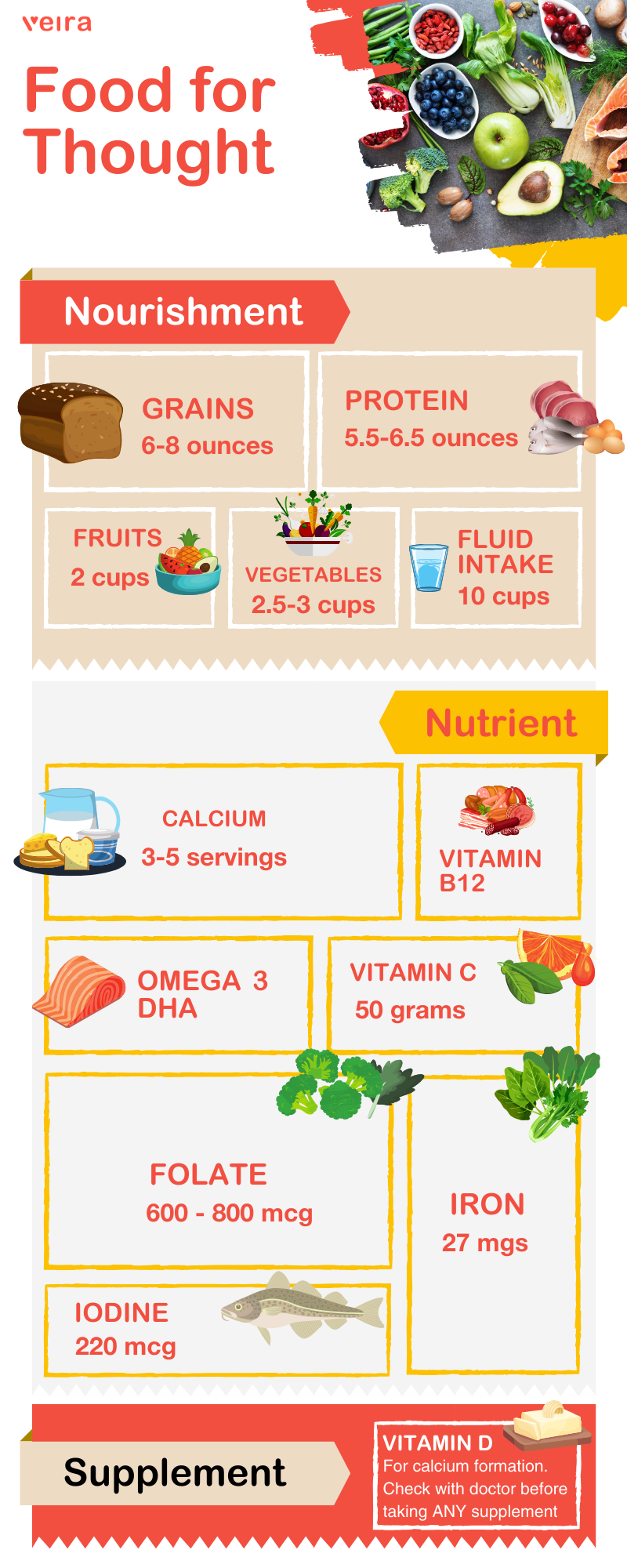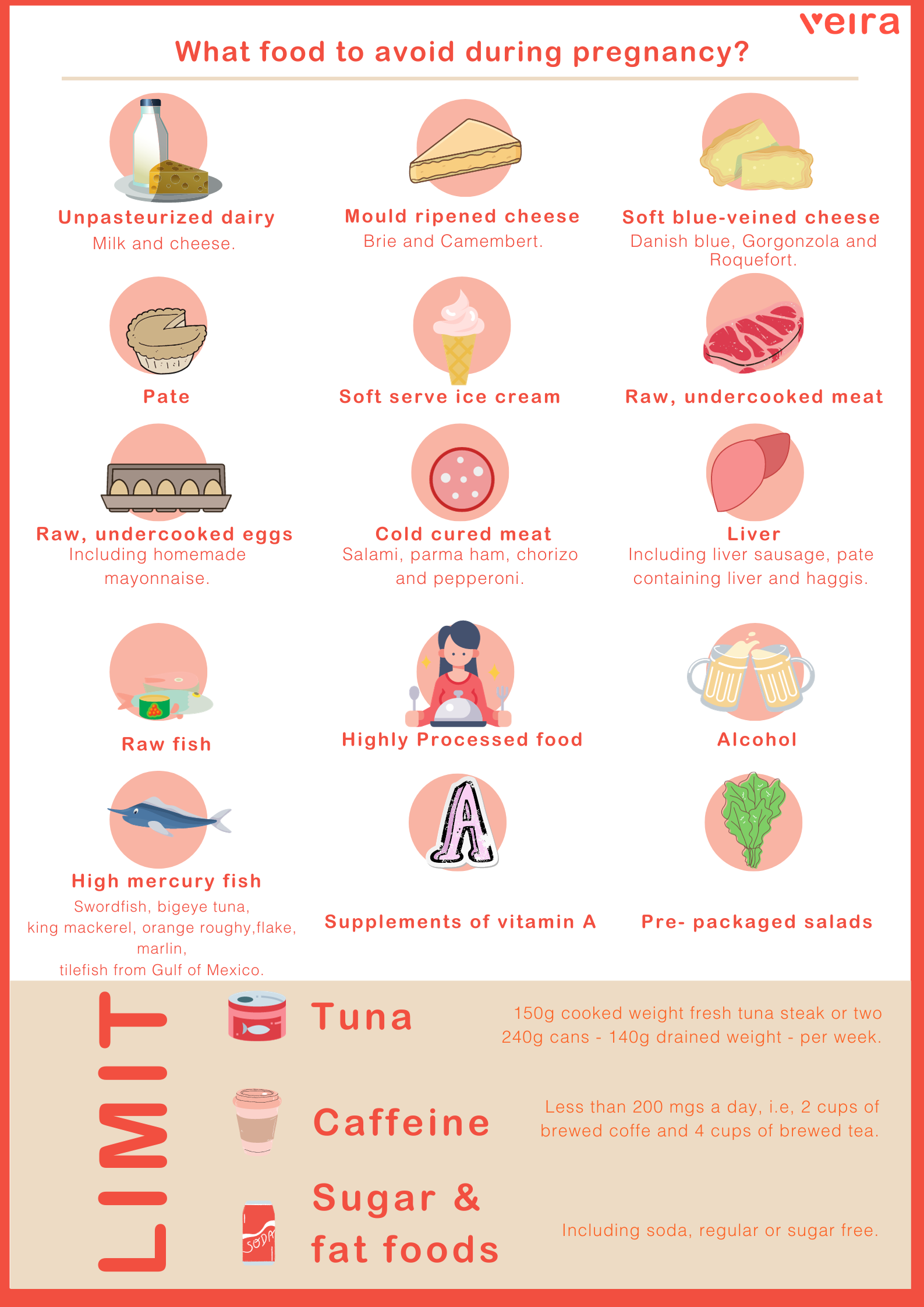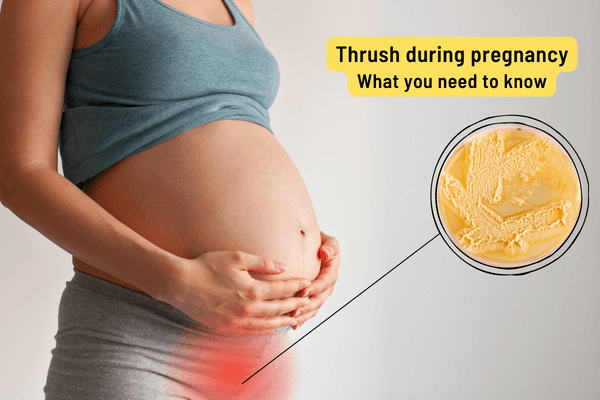Introduction
The first 1,000 days of life – starting from pregnancy and up to the child’s second birthday – is a unique period of opportunity when the foundations for optimum health and development across the lifespan are established
-UNICEF
The diet that the mother follows during her pregnancy can have a lasting impact on the mother’s long-term health as well the baby’s growth and development. In this blog post, we will discuss the importance of nutrition during pregnancy and provide tips on what to eat to have a healthy pregnancy.
Importance of pregnancy nutrition
During pregnancy, the body needs more nutrients than usual to support the growth and development of the baby. A balanced diet during pregnancy that includes all the essential nutrients the mother and baby need is crucial and can have several benefits for both the mother and the baby.
- The nutrients the mother consumes are the building blocks for the baby’s growth and development. A well-balanced diet will ensure that the baby is getting all the essential nutrients it needs to develop properly.
- It helps the woman stay healthy throughout the pregnancy and impacts her long-term health after the pregnancy as well.
- It can also help the mother maintain her energy levels and reduce the risk of pregnancy-related complications such as gestational diabetes and preeclampsia.
- Proper nutrition can help prevent certain birth defects, promote a healthy birth weight, reduce the risk of preterm labor, and lower the risk of chronic diseases later in life.
What nutrients does a pregnant woman need?
Pregnant women require specific nutrients to support the baby’s growth and development. Some of the essential nutrients include:
Protein:
Protein rich food is the source for essential amino acids and are essential for fetal development and growth. Pregnant women should aim to consume 75-100 grams of protein per day. The best sources of essential amino acids are animal proteins such as meat and eggs. Soy derivatives such as tofu also contain amino acids and are considered “complete” sources of protein. Other sources include fish, beans, and legumes.
Iron:
Iron is crucial for the formation of red blood cells, which carry oxygen to the baby. Pregnant women require more iron than non-pregnant women. Red meat, poultry, fish, beans, and leafy greens – all have iron.
Folate:
Folate is crucial for the baby’s brain and spinal cord development. Pregnant women should consume at least 600 mcg of folate per day. For folate include leafy greens, citrus fruits, beans, and fortified cereals in your diet.
Calcium:
Calcium is essential for the baby’s bone development. Pregnant women require at least 1,000 mg of calcium per day. Include dairy products, leafy greens, and fortified juices in your daily meal plans for calcium.
Vitamin D:
Vitamin D is essential for the baby’s bone growth and development. Pregnant women should consume at least 600 IU of vitamin D per day. Good sources of vitamin D include fortified dairy products and exposure to sunlight.
Omega-3 Fatty Acids:
Omega-3 fatty acids are essential for the baby’s brain and eye development. Pregnant women should aim to consume at least 200-300 mg of omega-3 fatty acids per day. Sources include fatty fish such as salmon, trout, and sardines.
What foods to eat during pregnancy?
Whole grains provide fiber, vitamins, and minerals. Eating whole grains during pregnancy is an excellent way to obtain the essential nutrients and fiber that you and your growing baby need.
- Whole grains, such as brown rice, whole wheat bread, and quinoa, are a good source of B vitamins, which are important for your baby’s brain development. Additionally, they contain fiber that helps to regulate digestion and prevent constipation, which is common during pregnancy.
- Try incorporating whole grains into your meals by swapping refined grains with whole grain alternatives. For example, replace white bread with whole wheat bread, and opt for brown rice instead of white rice.
- Good sources of whole grains include whole-wheat bread, brown rice, and oatmeal.
Eating a variety of fruits and vegetables is essential for a healthy pregnancy. Here are some reasons why:
- They provide essential vitamins, minerals, and fiber that are important for both you and your growing baby.
- Fruits and vegetables can help with digestion, reduce constipation, and promote healthy weight gain.
- Eating a variety of colorful fruits and vegetables can also help ensure you get a wide range of nutrients.
- Choose a variety of colors to get a wide range of nutrients. For example, red and orange fruits and vegetables are rich in vitamin A, while leafy greens are high in iron and folic acid.
- Try to eat them raw or lightly cooked to retain their nutrients.
- Incorporate them into meals and snacks, such as adding berries to oatmeal or having carrot sticks with hummus as a snack.
- Choose fresh or frozen fruits and vegetables over canned, as they tend to have less added sugars and sodium.
Lean Proteins:
Protein is essential for your baby’s growth and development, and it’s important to make sure you’re getting enough of it during pregnancy. Lean proteins are a great choice because they are low in fat and high in nutrients. Good sources of lean protein include:
- Poultry: Chicken and turkey are excellent sources of lean protein. Make sure to remove the skin to reduce the fat content.
- Fish: Many types of fish are a good source of lean protein. Just be sure to avoid high mercury fish, such as shark, swordfish, and king mackerel.
- Beans and Legumes: Lentils, chickpeas, and black beans are all excellent sources of protein, as well as other important nutrients like fiber and iron.
- Eggs: Eggs are a great source of protein, as well as other important nutrients like choline, which is essential for fetal brain development.
- Soy Products: Tofu and tempeh are both good sources of protein, as well as other important nutrients like iron and calcium.
Dairy Products:
- Dairy products are an important source of calcium, which is essential for your baby’s bone development. They also contain other important nutrients like vitamin D, which helps your body absorb calcium. Good sources of dairy products include:
- Milk: Whether it’s cow’s milk or a milk alternative like almond milk, milk is an excellent source of calcium.
- Yogurt: Yogurt is not only a good source of calcium, but it also contains probiotics, which can help keep your digestive system healthy.
- Cheese: Cheese is a good source of calcium and other important nutrients, but it’s also high in fat, so it’s important to choose lower-fat options and eat it in moderation.
Healthy Fats:
- While it’s important to limit your intake of saturated and trans fats during pregnancy, it’s also important to make sure you’re getting enough healthy fats. Omega-3 fatty acids, in particular, are important for your baby’s brain and eye development. Good sources of healthy fats include:
- Nuts and Seeds: Almonds, walnuts, chia seeds, and flaxseeds are all good sources of healthy fats.
- Avocado: Avocado is not only a good source of healthy fats, but it also contains other important nutrients like folate, which is important for fetal development.
- Fatty Fish: Salmon, sardines, and mackerel are all good sources of omega-3 fatty acids. Just be sure to avoid high mercury fish.
What foods to eat during pregnancy? Check out our infographic below-

What food to avoid during pregnancy?
While it’s important to eat a healthy, balanced diet during pregnancy, there are also certain foods that you should avoid. These include:
- High Mercury Fish: High mercury fish like shark, swordfish, tile fish and king mackerel should be avoided during pregnancy. Also limit consumption of canned albacore tuna.
- Raw or Undercooked Meat, seafood and Eggs: Some examples for the meat are pate, fois gras, beef tartare, uncooked hot dogs and sausages. Raw seafood includes sushi, sashimi, raw oysters etc. These foods can be contaminated with bacteria like salmonella, which can be harmful to your baby.
- Unpasteurized Dairy Products: Raw unpastuerised milk or soft unpastuerised cheeses such as brie, camembert, feta etc. can contain bacteria like listeria, which can be harmful to your baby.
- Caffeine and Alcohol: Both caffeine and alcohol should be limited during pregnancy. Experts recommend no more than 200mg of caffeine per day (about one cup of coffee) and no alcohol at all. Alcohol can increase the risk of miscarriages and stillbirth, and excessive alcohol consumption may result in fetal alcohol syndrome, including facial deformities, low birth weight and mental retardation.

Essential pregnancy nutrition tips from experts
Here are some practical tips from experts that you can follow to help you eat well during pregnancy:
Eat a Balanced Diet
A diet rich in fruits, vegetables, whole grains, lean protein, and healthy fats is recommended. Make sure to include a variety of foods from each food group to ensure you are getting all the essential vitamins, proteins, fats and other nutrients that you need.
Stay Hydrated
Staying hydrated is important during pregnancy, as it helps maintain healthy blood volume, prevents dehydrations and constipation, and supports the development of the placenta. Aim to drink at least eight glasses of water per day, and avoid sugary drinks that can lead to excessive weight gain.
Snack healthy
Processed foods, sugary snacks and junk food are high in empty calories and are not ideal during pregnancy, as they contain high levels of sodium, sugar, and unhealthy fats. Opt for whole, nutrient-dense foods like fruits, nuts, vegetables, lean protein, and healthy fats instead.
Don’t Skip Meals
Skipping meals is not recommended during pregnancy, as it can lead to low blood sugar and fatigue. Aim to eat small, frequent meals throughout the day to help maintain stable blood sugar levels and provide a steady source of energy.
Eat small, Frequent Meals
If you are suffering from morning sickness, heartburn, indigestion or nausea try eating smaller meals throughout the day. Eat five or six small meals instead of three large ones. To reduce nausea and vomiting, avoid spicy and fatty foods and instead reach out for bland and easy-to-digest foods.
Exercise Regularly
Exercise during pregnancy can improve circulation, reduce stress, and help improve mental health. Aim for at least 30 minutes of gentle to moderate exercise most days of the week, such as walking, swimming, or prenatal yoga. Always consult with your doctor before starting any exercise program.
Practice Safe Food Handling
Proper food handling and storage are critical during pregnancy to prevent foodborne illness. Wash your hands before preparing or eating food, cook meat and eggs thoroughly, and avoid cross-contamination between raw and cooked foods.
Take Care of Your Mental Health
Pregnancy can be an emotional time, and it’s important to take care of your mental health. Practice self-care, get plenty of rest, and seek support from family, friends, or a mental health professional if you’re feeling overwhelmed or anxious. This will help you stay positive, make healthy choices and take care of yourself.
Conclusion
Eating a healthy, balanced diet during pregnancy is one of the most important things you can do for your health and the health of your baby. By following these nutrition tips, you can help ensure a healthy pregnancy and a healthy baby. Remember to talk to your doctor or a registered dietitian for personalized advice that’s tailored to your specific needs. With the right nutrients, a balanced diet, and a few practical tips, you can enjoy a happy, healthy pregnancy.
How can Veira Life help you?
At Veira Life we provide pregnancy support services at every step of your motherhood journey. Our prenatal classes are engaging, multi-modal and packed with resources that provide you all the relevant information you need in each of the phases in a structured and modular manner. Every user on the platform is paired with a qualified and certified maternity coach who will be able to help answer any questions you have and when needed direct you to specialists and experts for further advice. Register to try it out for yourself. We would love to be your village!
FAQs
Protein, iron, folate, calcium, choline, iodine, B vitamins, also vitamin A, C and D, and omega-3 fatty acids are important nutrients for pregnant women.
Pregnancy nutrition is crucial to maintain the mother’s health & energy, and for baby’s development. Protein, iron, folate, calcium, choline, iodine, B vitamins, also vitamin A, C and D, and omega-3 fatty acids are key during pregnancy.
Follow the tips in this post to ensure healthy nutrition during your pregnancy. Most importantly eat an adequate and balanced diet. Seek advice from a professional prenatal nutritionist for personalised meal plans.
Breakfast is the most important meal of the day. Studies show a likely higher chance of preterm labour in pregnant women who skip breakfast.
It’s best to start the morning with a protein rich breakfast. Tofu, eggs, cheese, paneer, tempeh and yoghurt are all great choices.
At night try to eat the heavier meals early and if eating later settle for a light snack such as crackers, toast, cheese, apple or yoghurt. Wait for some time after eating before you lie down.
- Get early prenatal care
- Eat a balanced diet
- Stay hydrated
- Get regular exercise
- Avoid harmful substances
- Manage stress and your mental health
- Get enough sleep and rest
- Educate yourself about pregnancy and childbirth
- Plan for postpartum care
- Reach out for help and support







